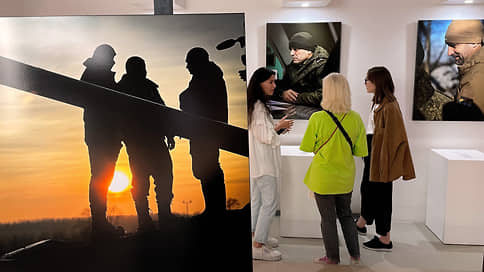supporters of peace negotiations and the continuation of hostilities in Russia are almost equally
[ad_1]

The Russians remain confident in the successful course of the special military operation (SVO) in Ukraine, according to the latest Russian Field survey. The actions of the Russian army are positively assessed by more than half of the respondents (58%), a little more than a fifth of the respondents adhere to the opposite position. At the same time, the proportion of those who support the termination of the NMD and the transition to peace negotiations (44%) is practically equal to the number of those who support the continuation of hostilities (45%).
In the course of the 12th survey in the Russian Field series of studies on the attitude of Russians to the NWO, sociologists spoke on the phone with 1.6 thousand respondents from June 16 to 19, 2023. According to the study, 58% of Russians positively assess the progress of the SVR, 21% negatively. 64% of respondents would approve the president’s decision to attack Kyiv – this is a record number for the entire time of the study, the authors of the survey note. However, the transition to peace talks would be positively assessed by 72% of respondents. 23% oppose the first variant of the development of events, 20% do not want the second one. Among those respondents who trust official sources of information (such 46%), 84% positively assess the current results of hostilities, and 74% would support an attack on Kyiv.
When respondents were asked to choose between continuing hostilities or peace negotiations, their responses were roughly evenly divided: 45% and 44%, respectively. The position on this issue depends on age: among citizens aged 18 to 29, 62% support the transition to diplomacy, and only 36% of those aged 60 and older. In the event that a second wave of mobilization is required to continue the JMD, the majority in all age groups (54% of the total number of respondents) will approve the peace negotiations, and only 35% are in favor of continuing hostilities in such a situation. Respondents of all age groups, regardless of their attitude to the continuation of hostilities or negotiations, do not see an early end to the NWO: the proportion of those who believe that it will stretch for more than a year is regularly growing and reached 49% (in March 2022, this option was chosen only 13% of respondents).
The question of what specific steps to take at the moment split the respondents. The most relevant strategy from their point of view is the transition to offensive actions (39%). Another 30% are in favor of maintaining the achieved positions and 12% – for the complete withdrawal of troops. Russian Field notes that the number of supporters of maintaining the status quo grows as the well-being of respondents increases, but decreases again when it “gets close” to the wealthiest group of respondents. It is also noticeable that the proportion of supporters of the offensive is higher among those who trust official data on the course of the NMD.
In general, the fighting in Ukraine remains in the perception of the majority of Russians as a remote event from them. 40% of respondents are tired of news related to SVO: this figure has been stable since March 2022. Relations with some relatives or friends because of a disagreement on the Ukrainian issue were terminated by 11% of the respondents.
The opinion regarding the SVO that has developed among each of the Russians can be considered finally settled at the moment, political scientist Alexei Makarkin believes. “The absolute majority have decided on their views,” he argues. “Now there are no events that would prompt people to reconsider these views.” Although Russians have access to various sources of information, they use them mainly to strengthen their opinion, the expert believes: “Information in most cases does not change their approach: if it contradicts their worldview, they almost immediately cut it off.” According to Mr. Makarkin, in almost a year and a half since its inception, the topic of the SVO has managed to “become routinized”, and the events related to it do not occupy the Russians in the same way as they did in February 2022 and at the start of partial mobilization. It is unlikely that the failed rebellion of the Wagner PMC will seriously affect their position, the political scientist adds: “Everything was fast, everything was very fast, people did not have time to get scared.”
[ad_2]
Source link








